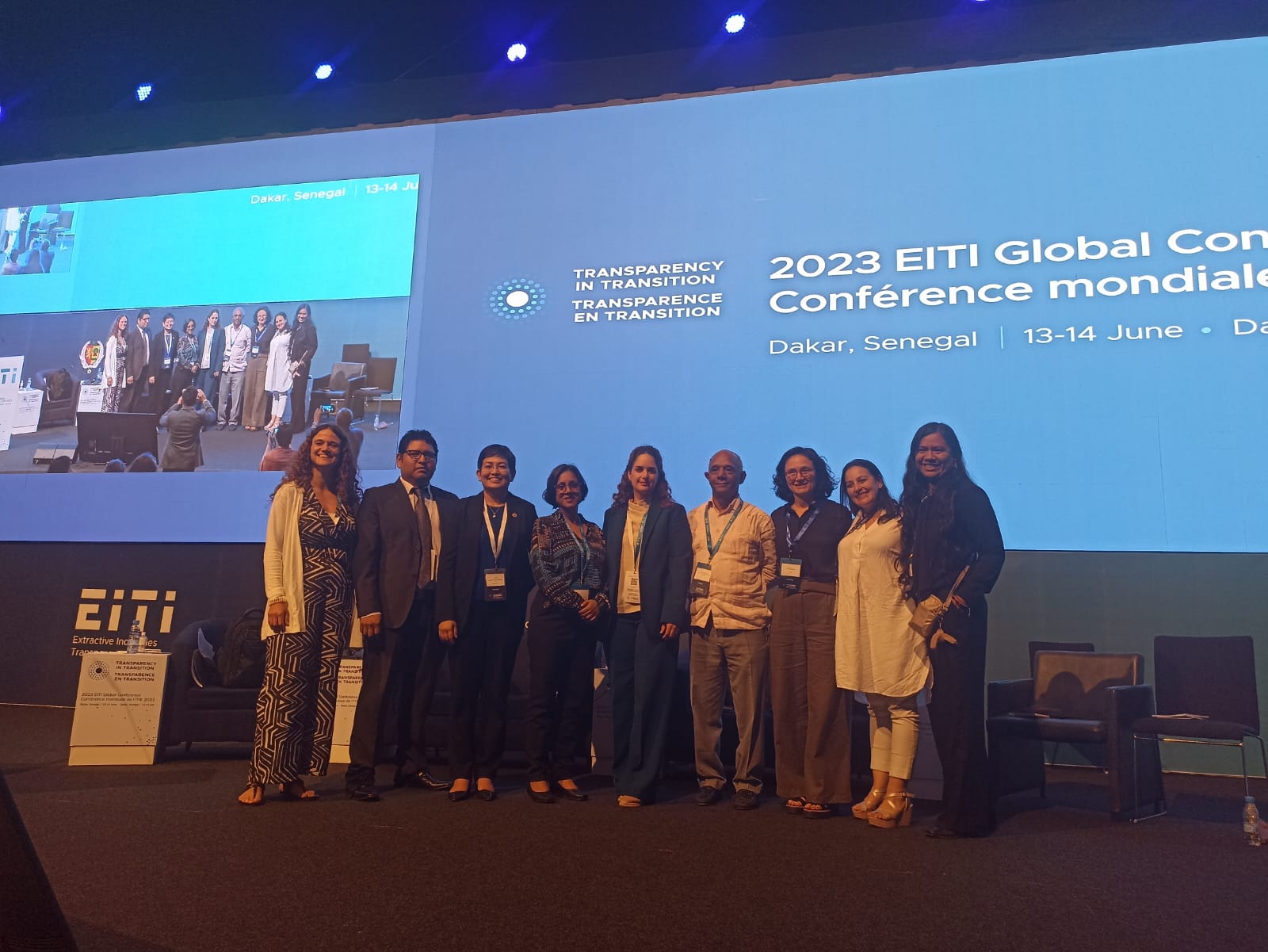On June 12, the new EITI 2023 Standard was approved. The new Standard includes provisions that will allow countries to respond to the most pressing challenges related to the governance of natural resources; reinforcing the dissemination and openness of information to increase the transparency of socio-environmental information; improving understanding of the impacts of the energy transition; addressing the risks of corruption; promoting gender equity; and strengthening transparency in revenue collection.
Regarding the new modifications, Vanessa Cueto, a new member of the EITI International Board and vice president of DAR, comments: «It is key that these requirements are implemented, since they respond to the request of more than 100 organizations from Latin America and the Caribbean that requested to the EITI Board through formal communication that incorporates commitments to release information related to the energy transition and environmental impacts linked to extractive industries as part of the EITI Standard”.
Energy Transition
As the renewable energy sector continues to attract investment and generate revenue streams, the need for greater transparency to ensure a sustainable transition to a clean energy future is ever more demanding. Therefore, the new EITI Standard was updated to include provisions related to the energy transition for the first time.
The 2023 EITI Standard supports disclosures and public debate on the impacts of the energy transition on the extractive sector and national economies. Therefore, governments are required to document their commitments, policies and plans for the energy transition, including the disclosure of public subsidies, capital and operating expenses, carbon pricing mechanisms, and taxes and subsidies for carbon (Requirement 2.1).
Environmental assessments
Regarding the disclosure of environmental impact assessments, the new standard updates Requirement 6.4, which requires countries and companies to ensure that these environmental, social and gender impact assessments, as well as monitoring reports, are accessible to the public.
Carbon emissions
For the first time, the EITI Standard encourages companies to disclose GHG emissions in accordance with major disclosure standards (Requirement 3.4), in recognition of the EITI’s role in promoting transparency and public debate on related information with the energy transition and the implications for EITI reporting.
Implementing countries will also need to document the rationale for expediting mining licenses (Requirement 2.2), which will help mitigate the risk of non-transparent deals in the context of increasing demand for critical minerals. Countries are further encouraged to disclose data on proven oil, gas and mining reserves with the required information on significant exploration activities (Requirement 3.1).
Prior consultation
On requirement 2.2 with the 2023 update to the EITI standard, countries and companies are expected to include information in their disclosures that explains the consultation process that was followed in order to grant a license. This would be a step forward in improving the standard, as in many countries, extractive companies are legally required to consult affected communities before granting an oil, gas or mining license.
Gender
As indicated in requirements 5.2 and 6.1, gender-disaggregated data on benefits to communities will be made visible, for example, on how companies’ social spending benefits women. Countries will also be encouraged to report on how revenue is managed locally, including how women and marginalized groups are taken into account.
Finally, in requirement 6.4, the 2023 EITI Standard introduces new requirements for the disclosure of information on the number of women employed at different occupational levels, and how employment is distributed between nationals and foreigners.
Small mining
The new 2023 EITI standard also addresses artisanal and small-scale mining more comprehensively. Under requirements 3.2 and 3.3, countries must disclose how they monitor and verify the accuracy of production and export data, which typically comes from oil, gas, and mining companies. An estimate of production and exports resulting from artisanal and small-scale mining must also be disclosed.
The EITI Standard was formally adopted at the EITI Members’ Meeting on June 12. Various stakeholders from more than 60 countries have been discussing good practices and strategies to implement the new EITI Standard throughout this week within the framework of the EITI 2023 Global Conference, which is being held in Senegal from June 12 to 15, 2023.


